Magically Millennials: They're Ages Ahead With a powerful lineup of entrepreneurs, start-ups and investors, the summit recognizes 35 most remarkable innovators who are rewriting the rules of the game
You're reading Entrepreneur India, an international franchise of Entrepreneur Media.

The 4th edition of Entrepreneur 35under35 is a celebration of a mindset and an attitude which tells you not to wait till tomorrow to do great things because you can do them today. It's a world where multi-faceted people,who create history in the present, get celebrated. They don't take the beaten path as they charter their own course. Making their own rules, they create their own legacy.

(This article was first published in the March 2020 issue of Entrepreneur Magazine. To subscribe, click here)
Fireside Chat: 35Under35 Hall of Fame
"My job is to tell stories," proudly says Rana Daggubati, Actor & Entrepreneur, in a fireside chat with Ritu Marya, Editor-in-Chief, Entrepreneur Media India & APAC. Today, consumers have different formats to enjoy content. Anybody influential endorsing products is more credible, but Daggubati feels that it is entirely different for feature films. Content is the king now."Filmmaking or storytelling has now become very democratic. You choose whatever story you want and tell it wherever you want to," he says.According to him, the day India starts taking drawing as seriously as Maths, we'd make the greatest design or animated films in the world.The actor believes that one can learn technology but not learn something that is required to build as a lifestyle.
"I wouldn't have been cast in Baahubali, had it not been for my body and my voice.The support and visual effects came later. Animation was never a lucrative career until a few years ago. Today, there's an animation industry in India because there were a few people who chose to step out of their comfort zones, and you'll be surprised to find the amount of animation that actually goes to the West from India," Daggubati explains. He urges all to create the ethos of arts and culture right from schools to build an enriched ecosystem.
Fireside Chat: The Artist Making Waves
Being on the digital platform was not the plan of Mithila Palkar, Digital Artist& Influencer. Having grown up with grandparents since childhood, Palkar's grandfather was not very keen her interest in being part of the entertainment industry. "We had nobody in the industry who would back us. We had no idea how it works. I totally understand his predicament but at that point, I was a rebellious teenager," she reveals.
After completing graduation in Mass Media, Palkargave her first audition to Quasar Padamsee of Quasar Theatre Productions (QTP). "The audition did not get me the role but Quasar gave me a job backstage, managing their theatre festival, Thespo," she says.
The digital artist's first show was News Darshan with Filter Copy. She believes that the internet has now become a legit medium of entertainment. "Entertainment on internet is the way forward. In India, the first thing that inspires you to be an actor is Bollywood, undeniably so. Acting on stage and acting on camera are two different schools of acting. For instance, Karwaan took lesser days to finish as compared to the second season of Little Things, despite it being a commercial film," she explains.
To become an influencer, Mithila feels, there has to be a genuine set of people who trusts your choices. "You have to have conviction in what you present or sell," she mentions. "To become an actor, just dream on, go for auditions; the first 100 will say no to you, but don't give up. There will always be a way if you have the will to pursue your dream," Palkar advises.
Fireside Chat: Competition in Entertainment
"Success and failures are more magnified in the entertainment industry. Just a day decides the fate of a six-month-long project," states actor Aditya Roy Kapur in a fireside chat with Ritu Marya, Editor-in-Chief, Entrepreneur Media - India & APAC. Kapur stresses on the need to do more films to allow more chances to give oneself for succeeding. "Acting is a volatile business, you can never really tell about the outcome of your work. You have to keep working and eventually develop a thick skin. Some will hit, some will miss," he says.
Just being on a movie set is what Kapur loves the most about his job. It is important to first figure out why you are doing what you are doing, according to the actor. "If you have the passion, the fight is worth it," he affirms. He says he was lucky enough to be back on set the very next day after a film flopped.
How to Lead Your Company to Growth
When does the business plan of an enterprise really take shape? This panel decodes the question by discussing how companies marry innovation with growth.What moderator Rajesh Sharma, Director, Brand Capital, deduces from the interaction is, "Operating efficiency is the most important benchmark when you are starting a business. Alignment to capital markets also becomes important as you grow. Moving forward, more visibility to your venture and branding, along with technology, become crucial. If a company has to grow, acceptance by investors and innovation are extremely important."
What Sai Srinivas Kiran G, Co-Founder &CEO, Mobile Premier League,considers his significant achievement at MPL so far is to ensure to onboard people who are better operators and rely on them to build the business."I had limited myself and my co-founders to do what we are good at – building products. We stuck to what our core strength is," he says.
Shobhit Bhatnagar, CEO & Co-Founder, Gradeup, believes that target metrics of any business is important to take a company to the next level.He mentions, "Transparency is important both with your consumer and your investor. Be very clear while pitching and have initial interactions of why you want that investor to come on board whist constantly communicating with them. If that purpose and direction is clear, you win a lot of support."
Scaling a company is all about a game of numbers for VasanthKamath, Co-Founder & CEO, Smallcase. "In the financial services space, people are easily aware if you are building something differentiated because you have to involve the entire ecosystem. And when you bring this ecosystem on a community with other industry participants, that serves as validation enough for investors to understand the differentiated product and the scope for it to grow faster than expected," he explains.
Hiring talent, for Kiran, has been the biggest challenge, and more so after getting them on board as he believes that managing their ambitions is even a greater challenge.
Neerav Jain, Founder, CityFurnish, likes to stickto the right metrics as he believes that helpsone scale the right way. Communication, according to him, becomes a challenge as a company grows. "The mission and clarity somehow get lost in communication. Defining the culture at the beginning would define the way you grow forward. Serving customer delight will automatically serve your investors too," he elaborates.
Ranjeet Pratap Singh, Co-founder & CEO, Pratilipi, has a different approach.He feels that managing one's psychology along with that of shareholders including partners and investors is of utmost importance. Aditya Goel, Founder & CEO, QuirkyByte Media, feels investments are overrated. "Generalizing every start-up is wrong. Often, investors are not aligned with the goal of founders. As entrepreneurs, our assets go beyond the balance sheet," he declares.
What Investors Want-Ask Them Anything!
Funds are looking to invest aggressively in India today. Agriculture and food-tech, logistics, healthcare services, manufacturing, edtech and prop tech are well poised to gain from the bull market in 2020. AshishFafadia, Partner, Blume Ventures, believes that a good combination of team, capital flowing in, stage at which the start-up is, and what market realities are in the company's operating vertical, are important factors to attract investors.
Rajeev Suri, Managing Partner, Orios Venture Partners, says he is most excited about the fintech sector."Financial industry has been at the forefront of dominating technology for the last 14-15 years. This gives an opportunity to reimagine the consumer experience. Capital markets and lending businesses in particular are interesting segments to watch out for," he says.
Investors look at mega trends sweeping demographics and societies, according to Archit Vijoy, Partner, DSG Consumer Partners. Citing examples, he says, "The green food movement like organic products and sustainably sourced raw materials are sweeping the minds of people.As investors, we look for founders who have come up with a product that most closely relates to a larger mission that he/she is trying to address. I am particularly very interested in lab grown meat and plant based foods."
For Saurabh Lahoti, General Partner& Investment Lead, Alacrity India, SaaS continues to rule the roost as they are very capital efficient.Sharing more insights, he explains, "Data shows that the overall capital required for a B2B business to move from point A to point B is half of what is required for B2C businesses. Also, the cost for a customer to move from one service provider to the other is really low. Businesses like Paytm, and more recently, KhataBook and OkCredit have created transformation for SMEs to look into technology solutions."
Any solution being offered to enterprises are in the context of helping these businesses increase their revenue or bring about efficiency to the organization.
Lifestyle Innovation & New Age Business Models
As FMCG and new consumer goods are changing retail shelves, it is no surprise then that new retail brands understand the consumer more closely. Moderated by Archit Vijoy, Partner, DSG Consumer Partners, this session explored the future of consumer product brands, new retail and FMCG.Understanding customer requirements is the key for Ankit Garg, Co-Founder & CEO, Wakefit. "If you offer the right product at the right prices to your consumers, you own the market. We have formed a Customer Experience team which aims to receive feedback from customers," he reveals.
Policy Returns is something that encouraged a lot of buyers to undertake the risk of purchasing online, feels Vaibhav Khandelwal, Co-founder, Shadowfax."Consumers expect faster delivery of products. Therefore, brands are now more concerned about customer experience. This actually gives a differentiated strategy for fulfillers like us that it is not just about cost but how good you are at influencing customer experience," he mentions.
Similarly, Ninjacart had to redesign its model in a manner that placed customers under different segments to address their needs accordingly. The fresh produce start-up's co-founder& CEO Thirukumaran Nagarajan, therefore believes that its customers' actions are not co-related with their influencers. For Shirin Mann Sangha, Founder &Creative Head, Needledust, it's very important for her clients to take ownership of the brand.
Sarvesh Shashi, Founder & CEO, SARVA - Yoga, Mindfulness and Beyond, holds both founder stories and customer insights of utmost importance."Our retention rate among instructors is 96 per cent and we are extremely fortunate to have raised three rounds of funding," he says.
Positioning of the brand and the experience created around the space you are operating out of are crucial for Sanchit Baweja, Co-founder, Stage 3. According to a Google & Bain report, brands which create an emotional connect with their consumers are the ones which are successful, quotes Suyash Katyayani, Co-founder, Purplle. He elaborates, "As a technologist, you need to be close to your business but even closer to your customer to understand their mindset. Influencers organically making videos on your brand work wonders. The amount of video content people are consuming is helping us reach out to people in terms of the pockets of consumers in a very efficient way."
Influencer Royalties Who Are Running Digital India
The panel brings together mavericks from different entertainment genres who are driving the content creation and building an independent strong presence that plays a vital role in the influencer community. For civil engineering graduate Ashish Chanchlani, YouTuber & Entertainer, who rocked the internet by publishing his comic vines on Facebook, Instagram and YouTube, engineering is a crash course for deciding what you want to do in life. "I started my journey with just 200 followers but today we have 16 million subscribers. There's no package for content creation.Be the person you are and have a unique style. Patience is another key pillar of success. A start is not born overnight," he says.
Music runs in 26-year-old singer Akasa Singh's family. She shares, "Ever since I was a little girl, I knew that music was my calling. I used to make up my own songs and perform them in front of everyone! I used to randomly put out videos on YouTube, and later started doing shows with Mika Singh. You won't believe that a video with lipstick on my teeth went viral, post which I was called for a reality show."Being authentic is the mantra for success, she believes.
Tech Disruptors
How will technology-enabled start-ups create future conglomerates? Quoting numbers, session moderator Sangeeta Bavi, Director—Startup Ecosystem, Microsoft India, shares, "About 50 years back, the average life expectancy of a Fortune 500 company was roughly about 75 years but today, it is less than 15 years. This is primarily due to tech disruptions."
"Just like a doctor who takes ultrasonic measurements, we have drones that can go on top of large assets, apply gels on these structures and then take ultrasonic measurements from these structures as well," proudly mentions Daniel Raj David, Founder and CEO, DeTect Technologies. Scalability wise, the start-up is the biggest player on this technology in India."We are trying to portray that India is great for not only scaling software technology but also is a hub for deep technology and hardware," David says.
Akhil Aryan, Co-Founder& CEO, ION Energy explains that in electric mobility, the most expensive component inside an electric vehicle is the battery pack. "And we are trying to build the brain of that battery pack, and connect it to cloud so that we can use machine learning, artificial intelligence to continuously improve the life and performance of those assets. Make electric mobility more accessible and competitive for large companies," he says.
Dockless has been in trend since the last 3-4 years and it is technology which has made this business possible, feels Varun Agni, CTO & Co-Founder, Bounce.
As the backbone of the economy, technology is the only way you can scale, believes Padmaja Ruparel, Co-Founder & President, Indian Angel Network."Technology is helping create bots which can do more than just chat, besides creating medical solutions and using satellites to change the agricultural landscape," she shares.

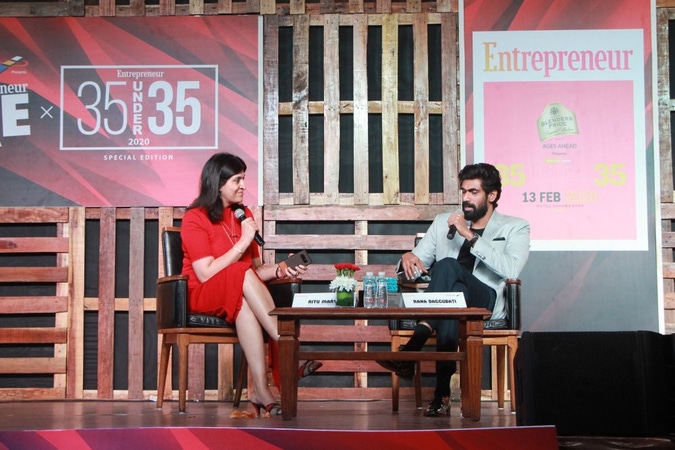 Entrepreneur India
Entrepreneur India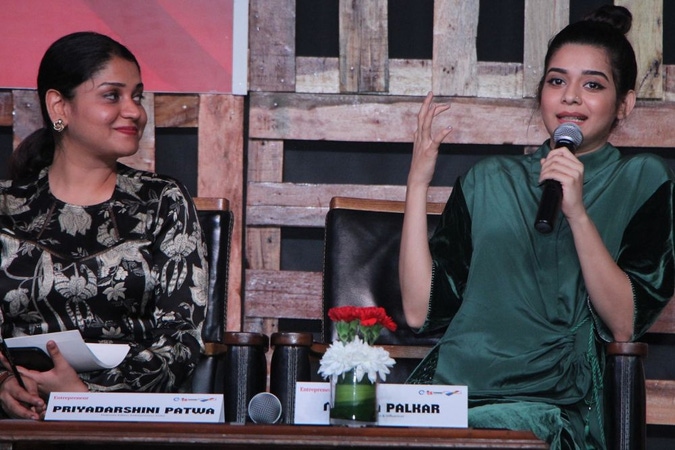 Entrepreneur India
Entrepreneur India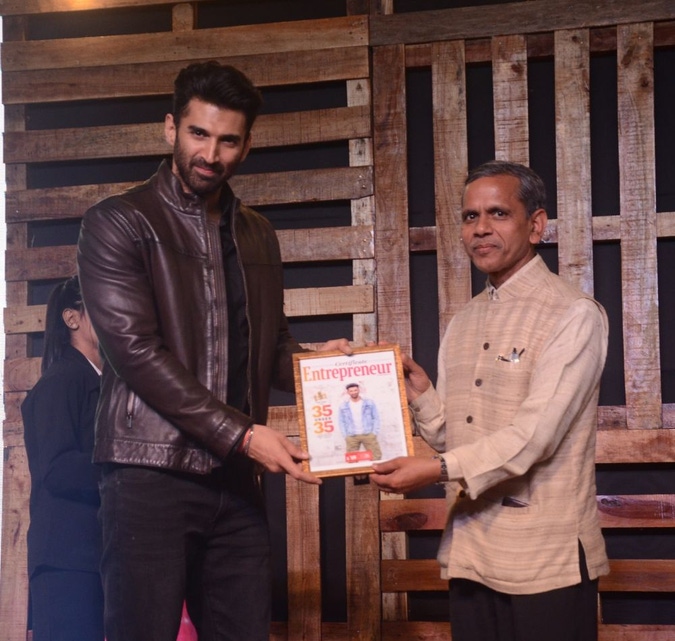 Entrepreneur India
Entrepreneur India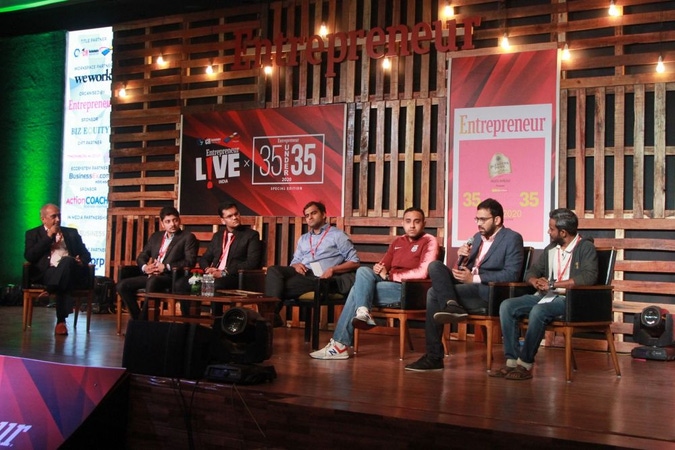 Entrepreneur India
Entrepreneur India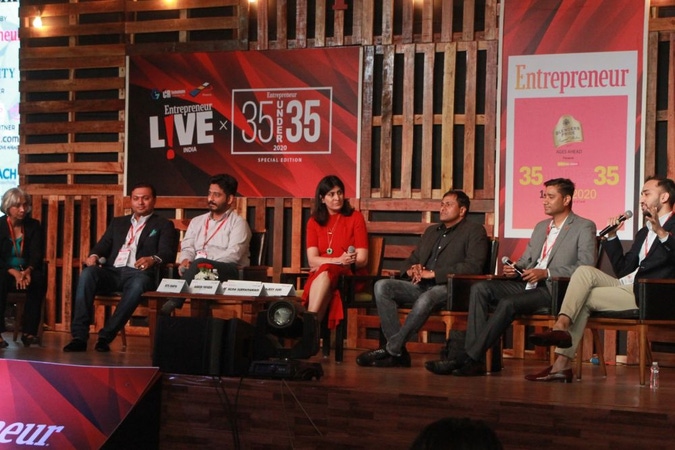 Entrepreneur India
Entrepreneur India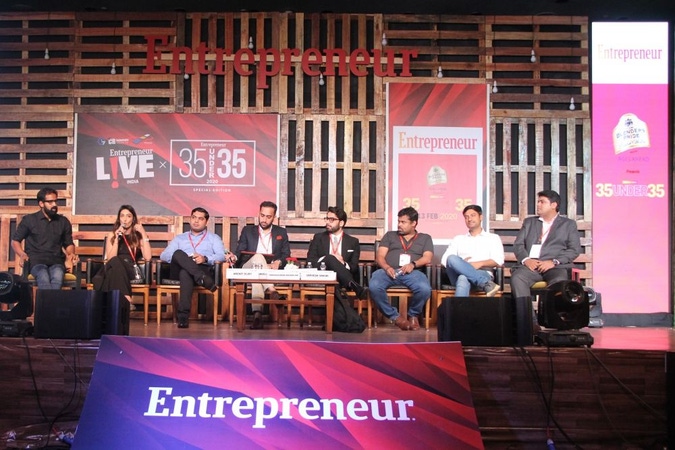 Entrepreneur India
Entrepreneur India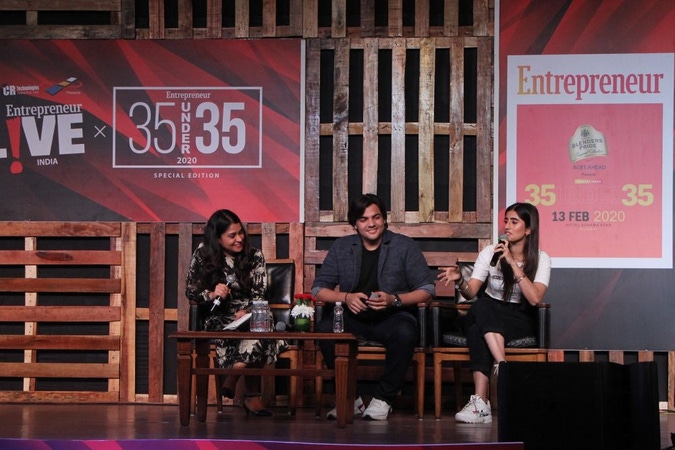 Entrepreneur India
Entrepreneur India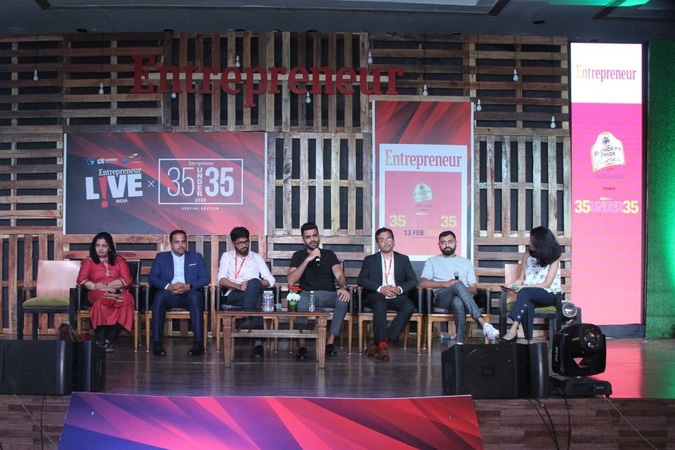 Entrepreneur India
Entrepreneur India









